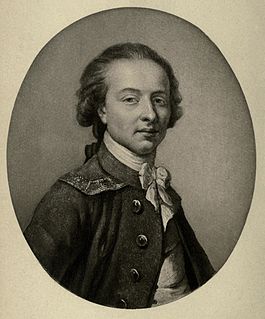A Quote by Gaston Bachelard
Here we are at the very core of the thesis we wish to defend in the present essay: reverie is under the sign of the anima. When the reverie is truly profound, the being who comes to dream within us is our anima. For a philosopher who takes his inspiration from phenomenology, a reverie on reverie is very exactly a phenomenology of the anima, and it is by coordinating reveries on reverie that he hopes to constitute a "Poetics of reverie". In other words, the poetics of reverie is a poetics of the anima.
Related Quotes
The reverie we intend to study is poetic reverie. This is a reverie which poetry puts on the right track, the track an expanding consciousness follows. This reverie is written, or, at least, promises to be written. It is already facing the great universe of the blank page. Then images begin to compose and fall into place.
A universe comes to contribute to our happiness when reverie comes to accentuate our repose. You must tell the man who wants to dream well to begin by being happy. Then reverie plays out its veritable destiny; it becomes poetic reverie and by it, in it, everything becomes beautiful. If the dreamer had "the gift" he would turn his reverie into a work. And this work would be grandiose since the dreamed world is automatically grandiose.
The demands of our reality function require that we adapt to reality, that we constitute ourselves as a reality and that we manufacture works which are realities. But doesn't reverie, by its very essence, liberate us from the reality function? From the moment it is considered in all its simplicity, it is perfectly evident that reverie bears witness to a normal useful irreality function which keeps the human psyche on the fringe of all the brutality of a hostile and foreign non-self.
It is quite evident that a barrier must be cleared in order to escape the psychologists and enter into a realm which is not "auto-observant", where we ourselves no longer divide ourselves into observer and observed. Then the dreamer is completely dissolved in his reverie. His reverie is his silent life. It is that silent peace which the poet wants to convey to us.
If there is any realm where distinction is especially difficult, it is the realm of childhood memories, the realm of beloved images harbored in memory since childhood. These memories which live by the image and in virtue of the image become, at certain times of our lives and particularly during the quiet age, the origin and matter of a complex reverie: the memory dreams, and reverie remembers.































